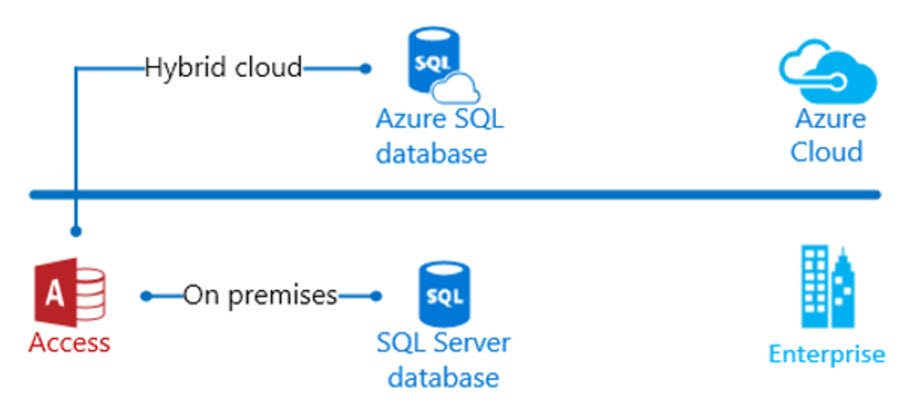Microsoft Access with a cloud SQL database
When Microsodt Access is connected to a cloud (SQL) database, it opens up a new world of possibilities. As long as the front end is installed on Microsoft Windows, the back end cloud database will work with any other web application: the most relevant being Power Apps, Power Automate, Power BI, Power Pages and ASP.net
Scalability Cloud SQL databases are scalable, ensuring data accessibility and integrity.
High availability Cloud SQL databases offer high availability with automatic failover across zones.
Automatic backups Cloud SQL databases automatically back up data, ensuring data integrity and accessibility.
Encryption Cloud SQL databases offer encryption at rest and in transit to safeguard sensitive information.
Secure access The Cloud SQL Auth proxy provides secure access to Cloud SQL instances without the need for authorized networks or SSL configuration.
Open standards Cloud SQL connectors are built on existing database driver standards, making them easy to use.
Private IP A private IP can be used to connect from other resources with access to a Virtual Private Cloud (VPC). Connections over private IP typically provide lower latency and limited attack vectors.
Built-in services Cloud SQL offers many services, including backups, high availability and failover, network connectivity, export and import, maintenance and updates, monitoring, and logging.

